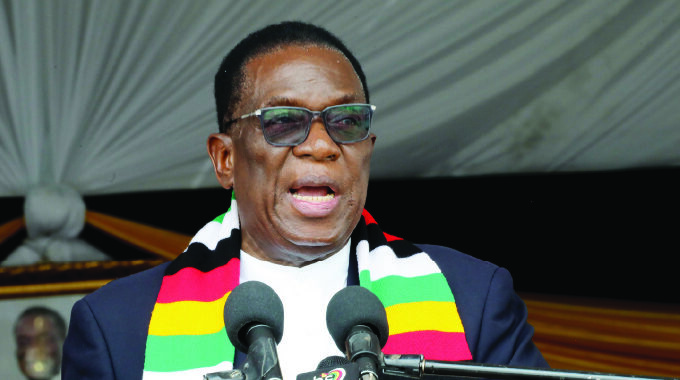Sikhumbuzo Moyo, [email protected]
STAKEHOLDERS who attended a Procurement Regulatory Authority of Zimbabwe (Praz) workshop on affirmative procurement guidelines in Bulawayo on Monday raised concerns about placing the elderly as one of the special interest groups in the allocation of tenders.
The elderly are one of the 10 special interest groups that Praz has targeted for particular attention when Government tenders are flighted with the other groups being the youths, women, micro and small enterprises, persons with disabilities, war and liberation struggle veterans, domestic and local contractors as well as domestic contractors in joint venture or sub-contracting with foreign suppliers.
Participants from state enterprises attended the workshop, which was presided over by Praz capacity-building director, Mr Cliff Gondo.
“Why should there be a special slot for the elderly? What is so unique about them when they can be part of the other targets? Let us remove this classification because it gives advantage to someone who is old but can also fit into any of the other group,” said a delegate from the Ministry of Health.

His views were supported by other delegates.
In response, Mr Gondo said they have taken note of the views and will be looking at them as an organisation.
The classification of the groups is meant to ease understanding of the procedure governing affirmative procurement (domestic preference) for the disadvantaged groups and to assist the disadvantaged groups to submit responsive bids.
This is also meant to ensure public enterprises comply with the domestic preference requirements in preparing bid documents as well as during bids evaluation.
The guidelines clarify the roles of parties involved in the application and monitoring of the affirmative procurement preferential schemes as well as sensitise and facilitate capacity building of the disadvantaged groups on public procurement.
In his opening remarks read by Mr Gondo, Praz chief executive officer, Mr Clever Ruswa, said the workshop was meant to educate members of the public on the domestic preference arrangement, to discuss and harness the transformative power of procurement in driving inclusive economic growth, social development and empowerment of marginalised groups.

“As Praz we are committed to ensuring that our procurement systems are not only efficient and effective but also equitable and just. The Public Procurement and Disposal of Public Assets Act provides a robust framework for achieving this vision, with specific provisions aimed at promoting affirmative procurement,” said Mr Ruswa.
He said in line with President Mnangagwa’s Vision 2030 Policy, Praz has undertaken significant efforts to strengthen the Public Procurement and Disposal of Public Assets Act. The Public Procurement and Disposal of Public Assets Amendment Bill aims to enhance efficiency and effectiveness in the procurement process and ensure better management and disposal of public assets.
The proposed amendments address identified gaps and challenges in the Act, aligning with the Constitution of Zimbabwe, international best practices and emerging trends in public procurement. “Key changes include strengthening the procurement regulatory framework, enhancing transparency and accountability and promoting inclusive procurement practices,” he said.

Mr Ruswa said the provisions are not merely a moral imperative but they are also a sound economic strategy.
“By empowering Women, Small and Medium Enterprises (SMEs), War Veterans, persons living with disabilities and youth-owned businesses, we are unlocking new sources of innovation, creativity and entrepreneurship,” he said.
Mr Ruswa said the workshop sought to raise awareness about the affirmative procurement provisions and their benefits, build capacity among targeted groups, equip them with the skills, knowledge and networks needed to succeed in the procurement marketplace and to facilitate partnerships between public and private sector entities, leveraging the strengths of both to drive inclusive growth and development.
“As we embark on this journey, I urge you all to remain committed to our shared goals. Let us work together to create a procurement system that is truly inclusive, equitable and just,” said Mr Ruswa.
He said a system that empowers marginalised groups drives economic growth and contributes to the well-being of citizens.

